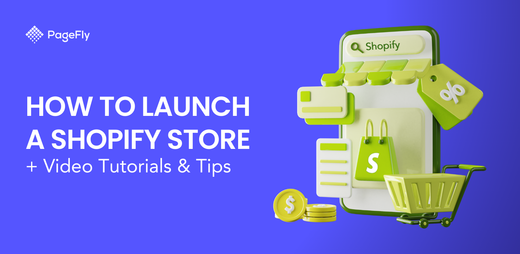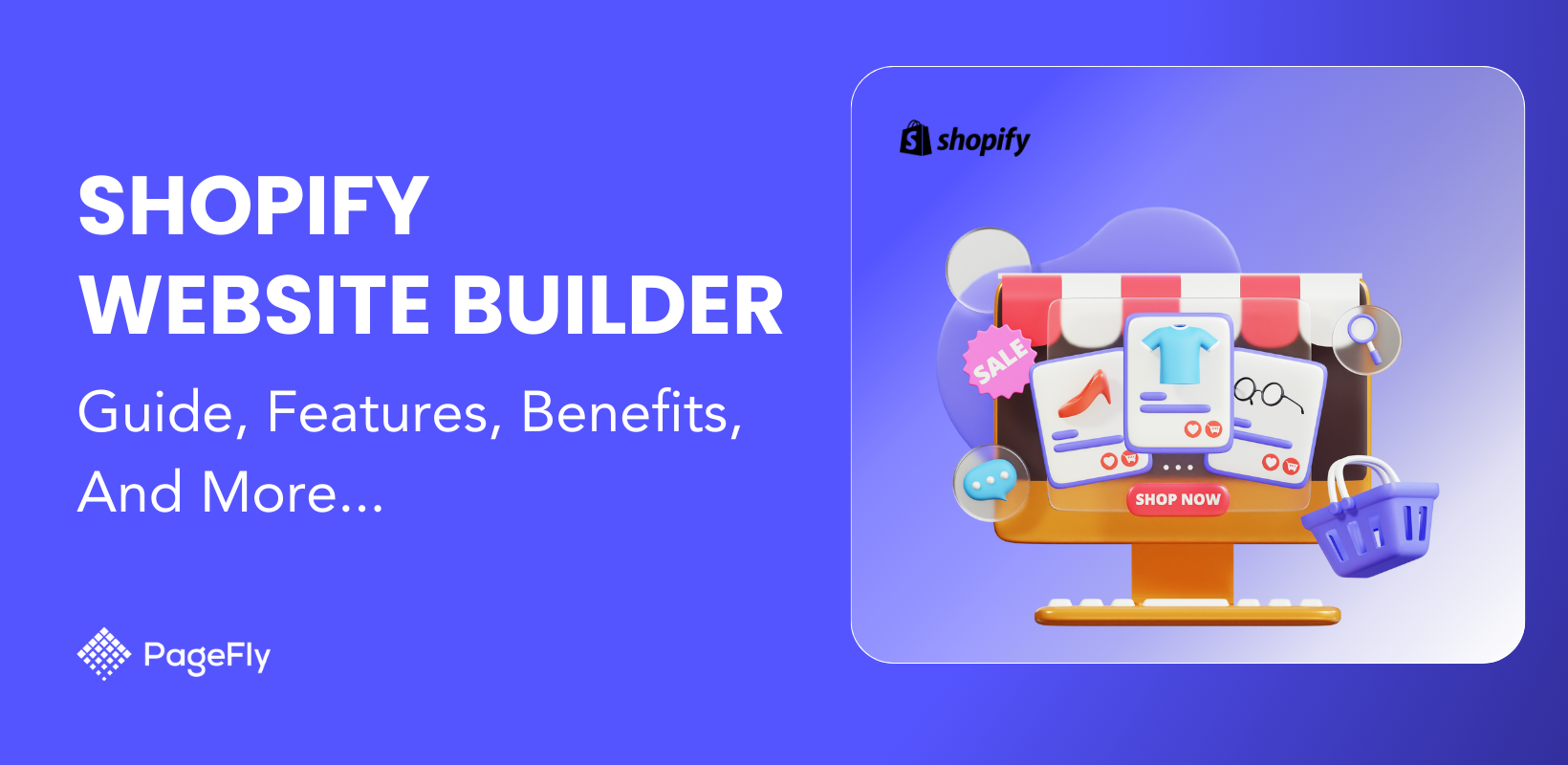So, you've finally made a big decision to launch an online business to sell an awesome product or some, but now you are still figuring out where to set up shop. After some thorough research, you've narrowed it down to two giants in the field: ClickFunnels vs Shopify.
Both platforms boast many features and benefits, but they also present distinct differences. So which one is the best bet for your business after all?
In this article, we'll compare their key features, pricing, and more to help you decide which platform is the better option.
Clickfunnels vs Shopify: A Head-To-Head Comparison Of Main Features
Feature | Clickfunnels | Shopify |
Primary Purpose | Sales funnel creation and optimization | E-commerce store creation and management |
Templates | Wide range of sales funnel templates | Large selection of customizable themes (free and paid), |
Product Management | Limited, focused on sales funnels | Robust, designed for extensive product catalog management |
Inventory Management | Advanced inventory management tools | Advanced inventory management tools |
Payment Gateways | Multiple, including Stripe, PayPal, etc. | Multiple, including Shopify Payments, Stripe, PayPal, etc. |
CRM System | Basic CRM functionality | Comprehensive CRM integrations available |
App Store | No | Extensive app store with thousands of apps |
Mobile App | No | Fully-featured mobile app |
SEO Management Features | Basic SEO tools | Advanced SEO tools |
Analytics and Reporting | Built-in analytics and A/B testing | Comprehensive reporting and analytics |
Shipping and Fulfillment | Limited, requires third-party integrations | Advanced, integrates with leading couriers, low shipping rates |
Affiliate Marketing System | Built-in affiliate management tools | Third-party integrations required for affiliate marketing |
Customer Support | 9 am to 5 pm, Monday through Friday | 24/7 support, extensive resources |
Best For | Businesses focused on lead generation and sales funnels | Businesses focused on building and managing online stores |
Pricing |
Sales Funnels
Winner: Clickfunnels
As suggested by its name, ClickFunnels excels in sales funnels and, of course, outperforms Shopify in this category. The former really focuses on funnel optimization, providing tools specifically designed to create high-converting sales processes.
If you're new to marketing and selling products, ClickFunnels is a highly recommended starting point.
Why? You ask.
ClickFunnels provides pre-built sales funnels that are scientifically designed to convert. These templates cater to a variety of needs, including selling products, memberships, courses, eBooks, webinars, services, and so on and so forth.
More than just online store creation, ClickFunnels also enables you to build your email list and run automated email marketing campaigns. This versatility makes it a complete marketing solution, removing the need for extra marketing software.
ClickFunnels provides a straightforward way to launch your business without the complexity. The online stores you can create with it lack the extensive features of those built on Shopify, but they offer enough functionality for beginners or those who want to get started quickly. For example, the fitness brand LadyBoss uses ClickFunnels to create effective sales funnels that drive high conversion rates.

Product Management and Inventory
Winner: Shopify
When it comes to product management and inventory, Shopify stands out as the superior platform with a complete set of tools to efficiently manage your online store. These tools are product catalogs, inventory management systems, shipping & fulfillment processes, payment handling, and extensive integrations with 3rd-party apps.
Shopify's customer management system is impressive as well, with 60+ detailed reports that deliver valuable insights into customer and sales data. These reports facilitate benchmarking, forecasting, and analysis of customer behavior patterns, helping business owners make informed decisions and optimize their operations.
CRM System
Winner: Shopify
Both Clickfunnels vs Shopify offer customer management features, but they cater to different needs.
ClickFunnels focuses on optimizing sales funnels and generating leads. This platform offers basic features such as capturing customer details, tagging, segmenting leads, and integrating with email marketing services. However, its customer management capabilities are limited compared to those of its counterpart.
Shopify comes with a comprehensive customer management system, though. It allows users to track customer data, order history, and purchase details. Its features also include customer segmentation, abandoned cart recovery, and built-in email marketing tools. What’s more, it supports third-party apps for advanced options like loyalty programs and customer feedback systems.
So for an all-encompassing customer management solution, Shopify is the superior choice. But if your primary goal is lead generation and sales funnel optimization, you would be good to go with ClickFunnels.
Analytics
Winner: Shopify
ClickFunnels offers basic analytics, including tracking website visitors, conversion rates, and funnel performance. It also integrates with Google Analytics for deeper insights into customer behavior and website performance.
Shopify comes with a comprehensive customer management system, though. The platform allows users to track customer data, order history, and purchase details. Its features also include customer segmentation, abandoned cart recovery, and built-in email marketing tools. Additionally, it supports third-party apps for advanced options like loyalty programs and customer feedback systems.
So, for an all-encompassing customer management solution, Shopify is the superior choice. However, if your primary goal is lead generation and sales funnel optimization, you would be good to go with ClickFunnels.
Online Store Builder
Winner: Shopify
Right off the bat, Shopify is the best option when it comes to creating an online store. The platform features an excellent selection of highly customizable themes, both free and paid. So you can precisely match your desired appearance and feel to the design of your store.
For individuals with technical skills, Shopify supports bespoke CSS and HTML coding for more advanced customization choices. Shopify's content management system also lets you easily produce and manage blog entries.
Additionally, Shopify provides a plethora of crucial features like the ability to use a shopping cart, safe checkout alternatives, and extensive order management capabilities. The platform's strong backend also enables business owners to manage their operations effectively.
On the other hand, Clickfunnels offers a variety of templates aimed at creating high-conversion sales pages and funnels. The customization options are not as extensive as Shopify's when it comes to building a full-featured online store. Fashion brand Gymshark, for instance, uses Shopify to manage their extensive online store, benefiting from its customizable themes and robust product management features.

App Store
Winner: Shopify
Shopify boasts an extensive app store filled with amazing plugins like Oberlo, Klaviyo, Yotpo, Privy, Bold Product Options, Shogun, and Pagefly. These applications and plugins act as extensions to enhance and optimize the Shopify store’s performance and functionality.
ClickFunnels has no app store of its own like its counterpart. But this isn’t the end of the world since ClickFunnels does support integrations with a variety of third-party apps such as Mindbody, ManyChat, Freshsales, MailChimp, Infusionsoft, Aweber, Drip, and ConvertKit.
Both Clickfunnels vs Shopify offer a plethora of integrations with third-party apps and plugins. Still, Shopify holds a slight edge in certain scenarios thanks to its dedicated app store and large directory of plugins.
Mobile App
Winner: Shopify
Shopify has a mobile app that is available on both Android and iPhone. The app lets you track sales and orders, manage inventory, and contact customers via email or call right on the palm of your hand.

Payment Gateways
Winner: Shopify
Both offer various payment gateway options, enabling businesses to accept payments securely and conveniently from their customers. Still, in comparison, while ClickFunnels relies solely on third-party integrations, Shopify's internal payment processing platform sets it apart.
ClickFunnels supports integration with multiple payment gateways, including PayPal, Stripe, and Authorize.net. This gives businesses the flexibility to select the most suitable payment gateway that meets their needs.
Shopify, on the other hand, not only integrates with popular payment gateways like Stripe, PayPal, and Square but also has its own payment processing system, Shopify Payments.

Security is where both Clickfunnels vs Shopify excel. ClickFunnels implements comprehensive security measures to safeguard users' personal information, with the security of payment data being dependent on the selected payment gateway's protocols.
Shopify, however, goes a step further by being fully PCI compliant and offering additional security features such as two-factor authentication, advanced admin security controls, fraud protection, and stringent password policies.
SEO Management Features
Winner: Shopify
When you’re setting up your online store and ready to conquer the digital marketplace, you know that SEO is your secret weapon for attracting visitors. But how do ClickFunnels and Shopify compare here?
ClickFunnels offers the basics: you can customize meta titles and descriptions, which is a good start. Still, it lacks built-in tools for generating sitemaps, optimizing images, or creating schema markup - All are about boosting a website's search engine ranking.
In contrast, Shopify takes the lead with a suite of built-in SEO features. It automatically generates sitemaps, offers robust image optimization tools, and allows for the integration of schema markup.
ClickFunnels includes some fundamental SEO features, but Shopify excels with its more extensive and user-friendly SEO capabilities. So, Shopify is the better choice for businesses aiming to enhance their online presence and drive more traffic to their website.

Customer Support
Winner: Shopify
Shopify ensures you’re never left in the dark with round-the-clock support available via email, live chat, and phone. Furthermore, their extensive knowledge base, video tutorials, and active community forums are ready to help at a moment’s notice. It also offers a premium VIP support plan for enterprise-level businesses seeking an extra layer of assistance.
On the other side of the battle line, ClickFunnels provides reliable customer service through email and live chat from 9 AM to 5 PM, Monday through Friday. For those desiring elevated support, ClickFunnels’ Platinum plan offers dedicated assistance and priority response times.
While both Clickfunnels vs Shopify receive a thumbs-up for their support quality, Shopify’s 24/7 availability gives it a clear edge over ClickFunnels’ business-hour restrictions.
Ease of Use
Winner: Clickfunnels
If you've never marketed or sold a product before, or if you're not particularly tech-savvy, Clickfunnels is your best bet. While the stores you create with ClickFunnels may not be as feature-rich as those on Shopify or other CMS platforms, it's more than enough to get you up and running without any technical knowledge.
Shipping and Fulfillment
Winner: Shopify
Shopify really excels in shipping and fulfillment management since it offers a comprehensive suite of features that streamline these processes.
Shopify now collaborates with leading couriers such as DHL, USPS, and UPS, offering low shipping rates for small businesses. The platform also simplifies the fulfillment process by allowing users to efficiently manage orders, create packing slips and labels, and monitor shipments directly from the dashboard.
On the flip side, Clickfunnels lacks the extensive shipping and fulfillment features available on Shopify. It supports integration with third-party shipping services and carriers, but these integrations usually demand extra setup, customization, and, of course, incur additional costs.
Furthermore, Clickfunnels lacks built-in shipping rate calculators and automated order management systems, rendering it less efficient for handling large-scale physical product sales.
Affiliate Marketing System
Winner: Clickfunnels
ClickFunnels offers a built-in affiliate marketing system, which Shopify lacks.
ClickFunnels enables business owners to provide others with a unique link to sell their products. Then, whenever someone makes a sale on your behalf, you can reward them with a commission. This approach allows businesses to build a dynamic team of salespeople - all hard-working to boost their sales and expand their reach.
Shopify doesn't come with a native affiliate marketing system. To incorporate affiliate marketing into a Shopify store, users need to install third-party apps, such as the Affiliate app by Secomapp. These apps provide the necessary functionality, enabling store owners to manage affiliates, track sales, and pay commissions. However, this approach requires additional setup and might not be as integrated as ClickFunnels' built-in solution.
Email Marketing Tool
Winner: Clickfunnels
ClickFunnels seamlessly integrates with leading email marketing platforms like Mailchimp and AWeber, so merchants can craft comprehensive email marketing campaigns with ease. You can design stunning emails, organize them into strategic sequences, and automate the entire process, ensuring that subscribers receive your messages effortlessly. Additionally, you can target specific segments within your email lists for more personalized and effective campaigns.
Shopify, on the other hand, offers email marketing capabilities through third-party apps such as Shopify Email. Shopify Email allows merchants to create branded emails, automate marketing messages, and track performance metrics. While it's a robust tool, it requires users to install and set it up separately from their main store operations.
Automation Tool
Winner: Clickfunnels
Clickfunnels features something called “Action Funnel”. You can use this powerful automation tool to integrate your sales funnels with email marketing campaigns, ending up with a sophisticated automated marketing machine.
With Action Funnel, you can also precisely control which email list a user is added to upon opting in (or out) of your funnel and customize the emails they receive. You can configure actions based on specific triggers as well. For instance, when a customer makes a purchase, you can automatically add them to a new email list and enroll them in a new targeted campaign.
Clickfunnels vs Shopify: Pricing Comparison
ClickFunnels vs Shopify provides a couple of plans to cater to a variety of business needs and budgets. Both Clickfunnels vs Shopify offer free trials, letting users test the platforms risk-free without any financial commitment. As for max and min, users pay between $300 and $27,600 per year for Shopify, while ClickFunnels costs range from $1,164 to $3,564 per year, also depending on the selected plan.
Shopify offers several pricing options ranging from $25 to $2,300 per month, with the Basic plan starting at an affordable $25 monthly and the Plus plan costs up to $2,300. If you pay annually, it'd be even cheaper.

ClickFunnels, on the other hand, offers two main plans: The standard package at $97 per month and the ClickFunnels Platinum package at $297 per month. Once again, both plans are cheaper if paid annually.

Value for money depends on your business needs and goals. Shopify might be more cost-effective for building an online store and managing inventory. On the other hand, ClickFunnels could be better for creating sales funnels and marketing campaigns. Just know your needs and budget first before choosing the right platform and plan for your business.
ClickFunnels vs Shopify: Pros and Cons
Pros
- Comprehensive eCommerce features: Shopify is a robust eCommerce platform with extensive tools for managing products, payments, and shipping.
- App ecosystem: Shopify’s vast app store allows for extensive customization and enhancement of your online store.
- 24/7 customer support: Shopify provides round-the-clock customer support to assist with any issues.
- Mobile app: Shopify has a mobile app, so you can run your online store on the go.
Cons
- Transaction fees: Unless you use Shopify Payments, transaction fees can add up, increasing overall costs.
- Limited sales funnel tools: Shopify lacks the built-in sales funnel capabilities that ClickFunnels excels in, making it less ideal for businesses focused on direct sales. So you may need a third-party tool like PageFly to get the job done in term of this.
- Monthly costs for apps: Many of the advanced features require additional paid apps, which can increase the overall monthly cost.
Pros and Cons of Clickfunnels
Pros
- Comprehensive sales funnel tools: ClickFunnels excels in creating sales funnels, making it ideal for businesses focused on direct sales and conversions.
- Ease of use: Its intuitive drag-and-drop editor simplifies the process of building landing pages and sales funnels.
- Built-in email marketing: ClickFunnels includes email marketing and automation tools.
- Affiliate marketing management: Clickfunnels offers robust affiliate management tools, allowing you to create and manage affiliate programs easily.
Cons
- Higher costs: ClickFunnels plans are generally more expensive, with the standard package starting at $97 per month.
- Limited eCommerce features: While powerful for sales funnels, ClickFunnels lacks some of the comprehensive eCommerce features that Shopify provides.
- Steep learning curve: Despite its ease of use, mastering all the features of ClickFunnels can take time, especially for beginners.
- No mobile app: This can be a limitation for those looking for a mobile-first or app-based experience.
ClickFunnels vs Shopify: Which one is best for you?
At the end of the day, no single platform is flawless! Each platform has its own pros and cons, so the best choice for your business hinges on the type of business you're launching and the products you're planning to sell.
When Should You Choose Shopify?
Shopify is a perfect all-in-one eCommerce platform for small to medium-sized businesses wanting to set up an online store with extensive customization options. It features a wide array of integrations, payment gateways, and marketing tools to expand their business.
The platform is suitable for merchants looking to sell products across multiple channels, including social media and marketplaces. It also provides 24/7 customer support and offers a vast selection of free and premium themes.
When Should You Go for Clickfunnels?
Merchants should opt for ClickFunnels if they need a platform specifically designed for creating and optimizing sales funnels. It simplifies the process of building high-converting landing pages, sales pages, and complete sales funnels.
Unlike traditional eCommerce platforms, ClickFunnels prioritizes an all-in-one solution for sales and marketing activities. This makes it perfect for startups looking to quickly launch their websites and start driving sales.

Conclusion
When choosing the perfect platform to showcase your products and boost conversions, two major contenders often come to mind: Clickfunnels vs Shopify.
While both are well-known for boosting online sales, there are notable differences between their features and intended markets. Shopify has an advantage for demanding operations and robust e-commerce needs, while ClickFunnels is great for sales funnels and quickly launching a store.
And does Clickfunnels work with Shopify? Yes, it is noteworthy that merchants might benefit from the best of both worlds when utilizing these platforms in tandem.
Clickfunnels Vs Shopify FAQ
To set up a Shopify store, start by signing up for a free three-day trial. After creating your account, Shopify will walk you through each step of setting up your online store.
The answer is Yes, you can use Shopify and ClickFunnels to get the best bets in both worlds.
You can get the job done by integrating them through Zapier to transfer orders from ClickFunnels to Shopify or to send captured emails from Shopify orders to ClickFunnels.
ClickFunnels enable for effortless product addition, image uploads, and store customization through its intuitive drag-and-drop editor. The platform seamlessly integrates various facets of online store management, ultimately simplifying the process of monetizing your products.
However, Shopify offers a more comprehensive e-commerce platform with a robust suite of features tailored specifically for online stores.
ClickFunnels is an exceptionally powerful platform with a full range of marketing and sales features. Its numerous advantages make it a worthwhile investment, particularly for users who aren't tech-savvy and may struggle with using similar features on other platforms.




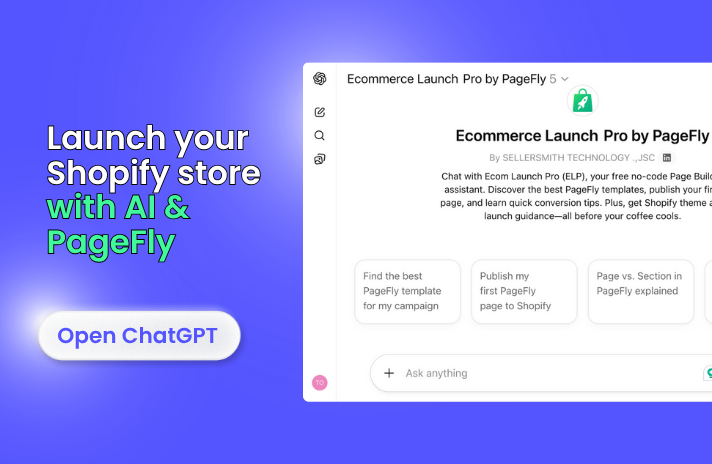
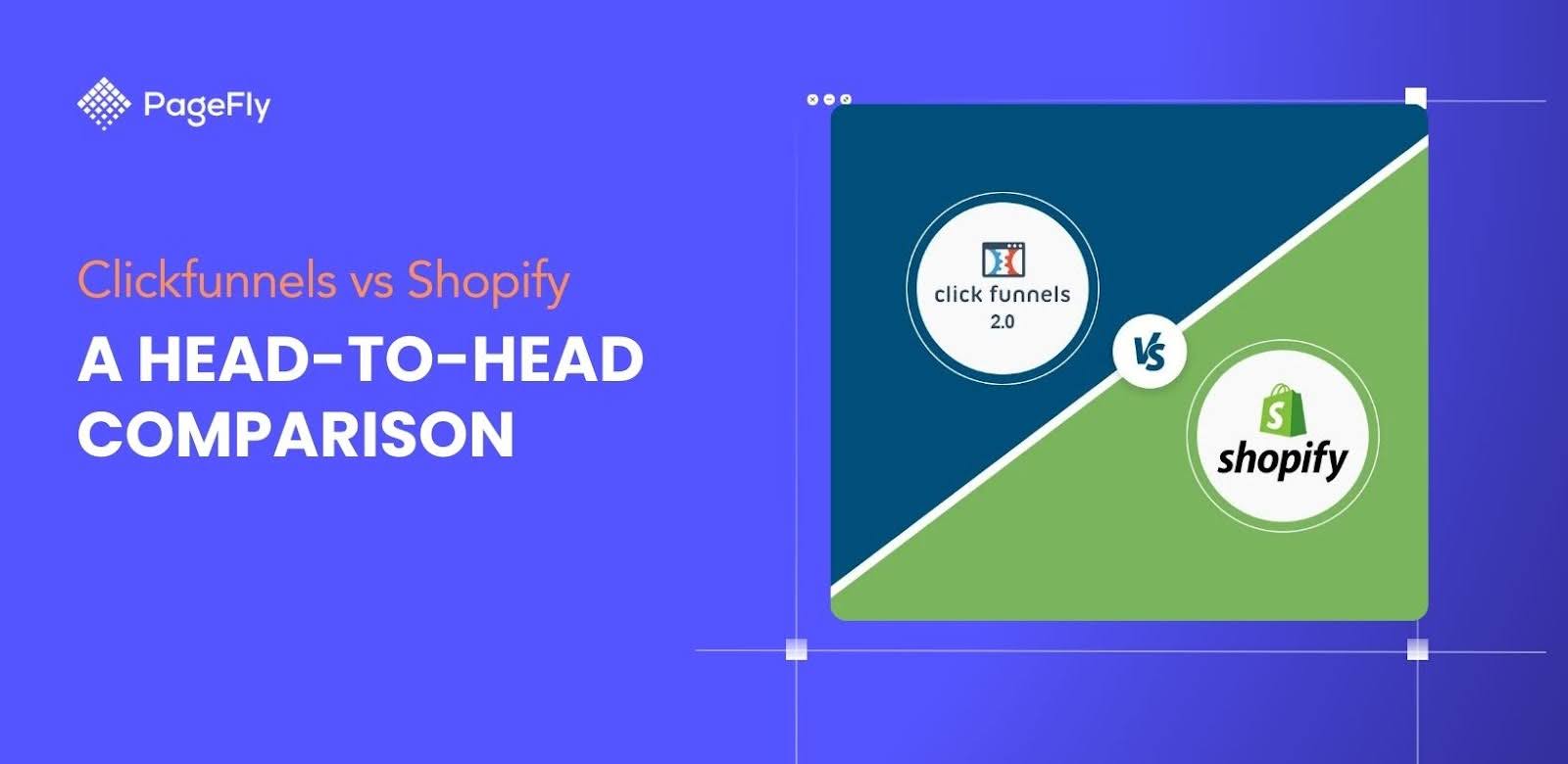

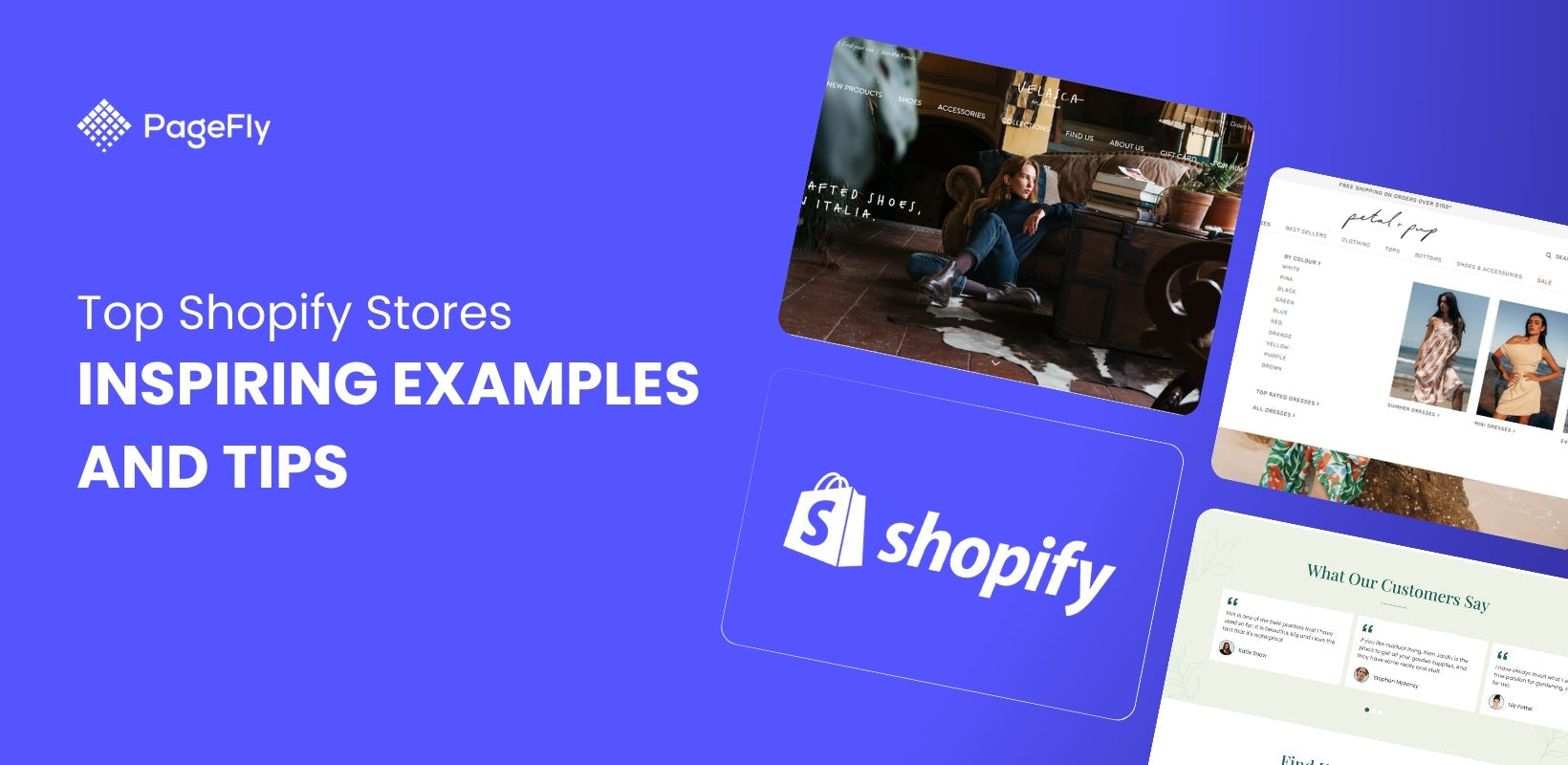
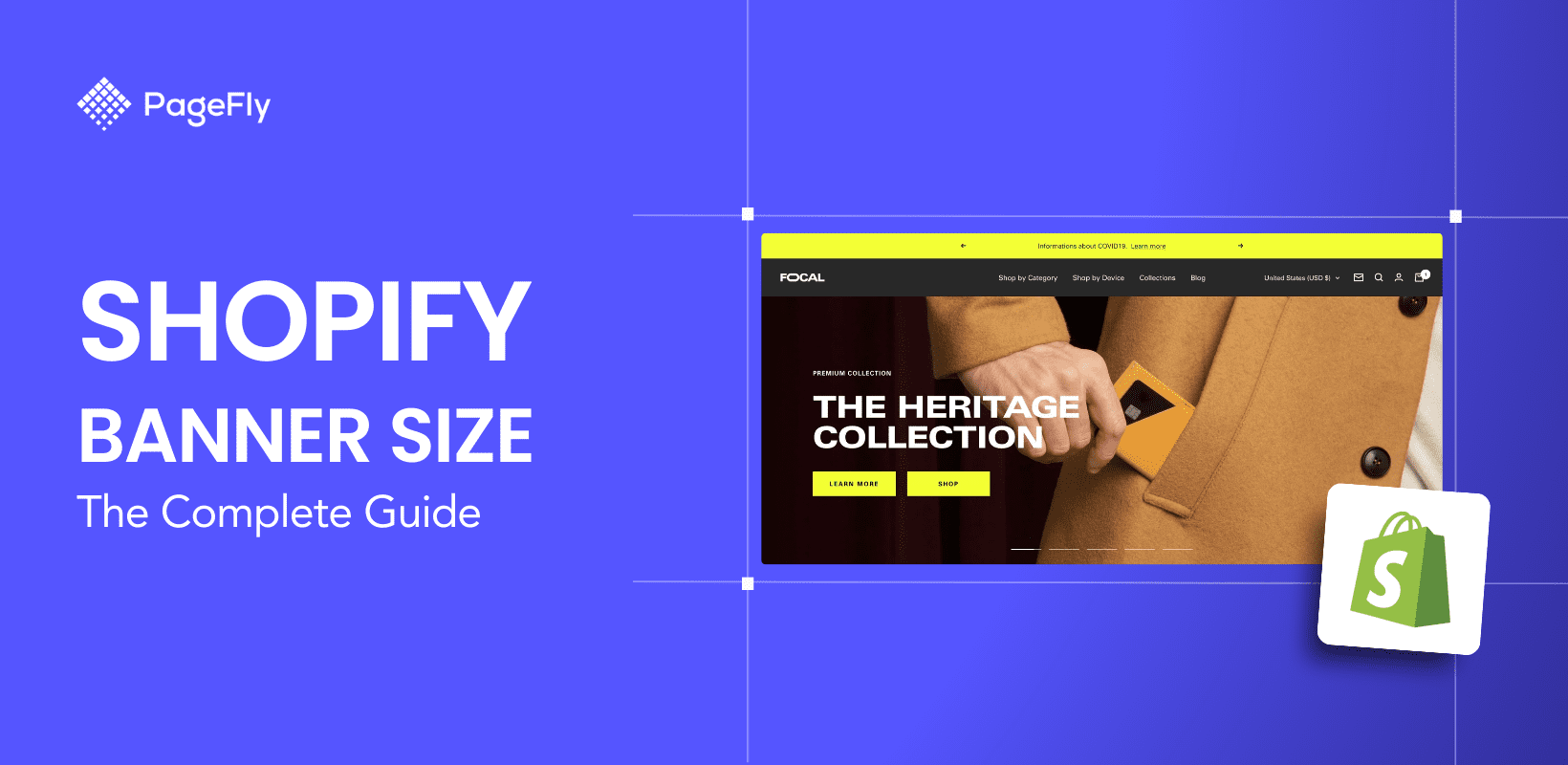
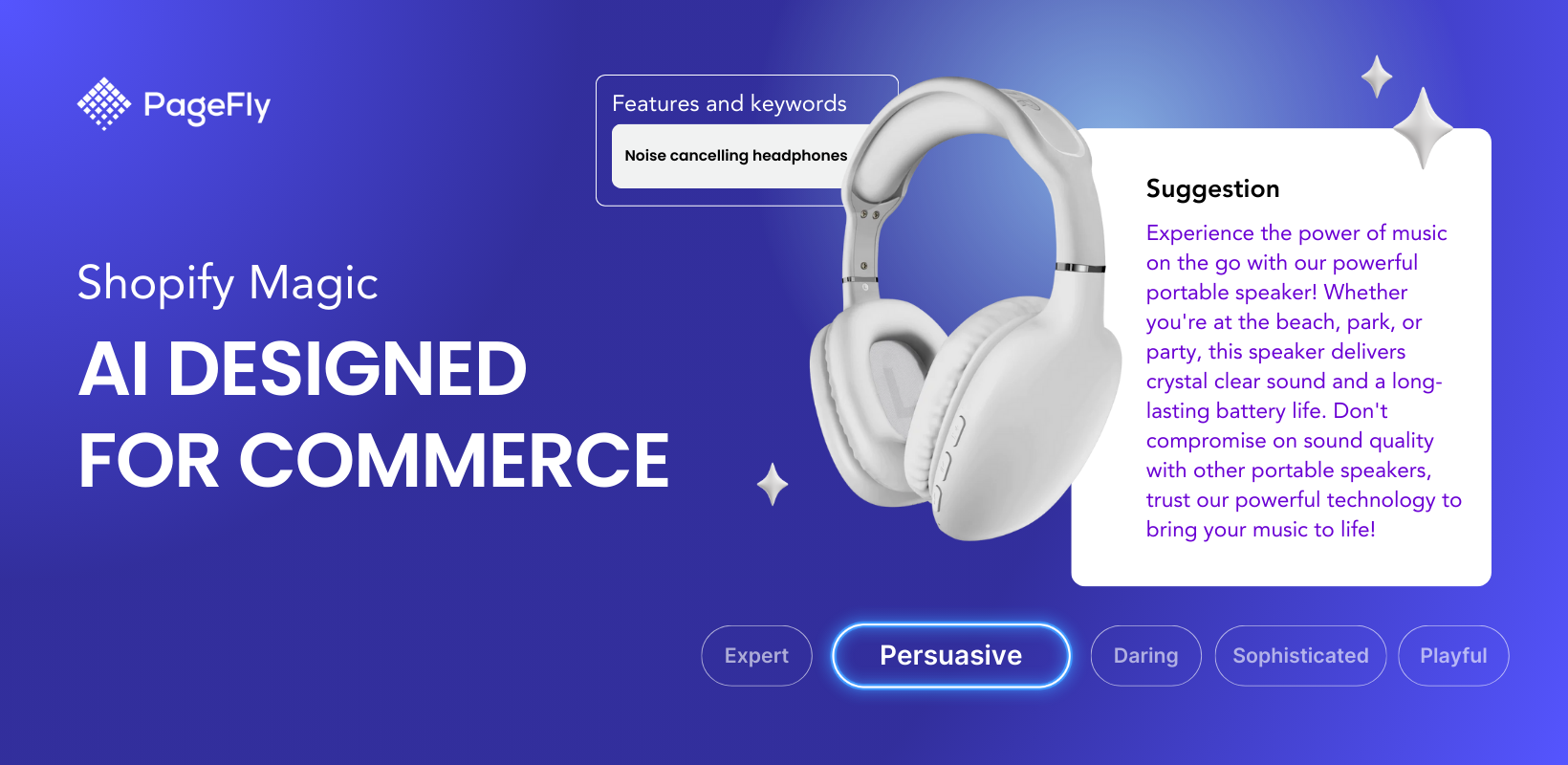
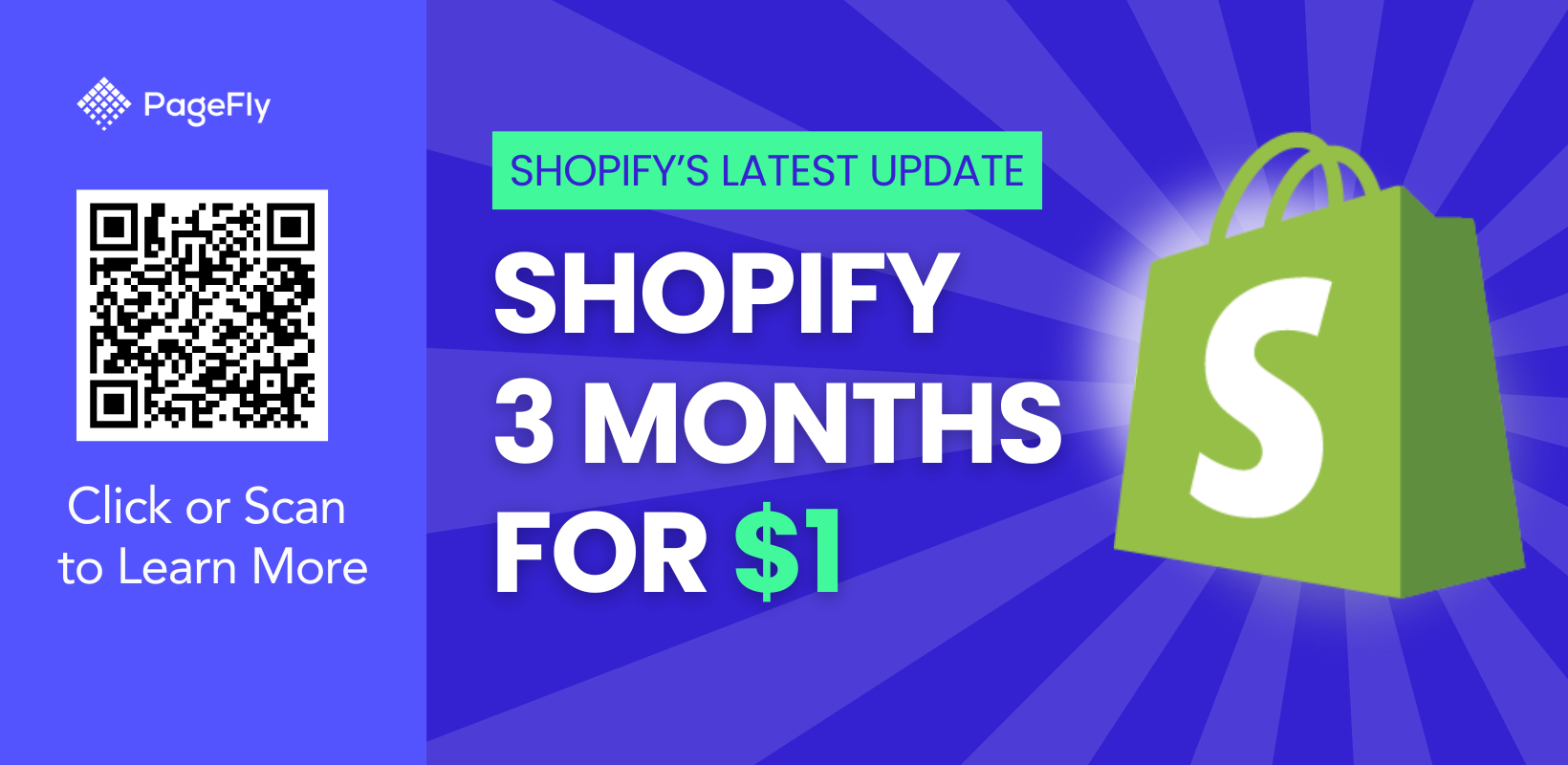
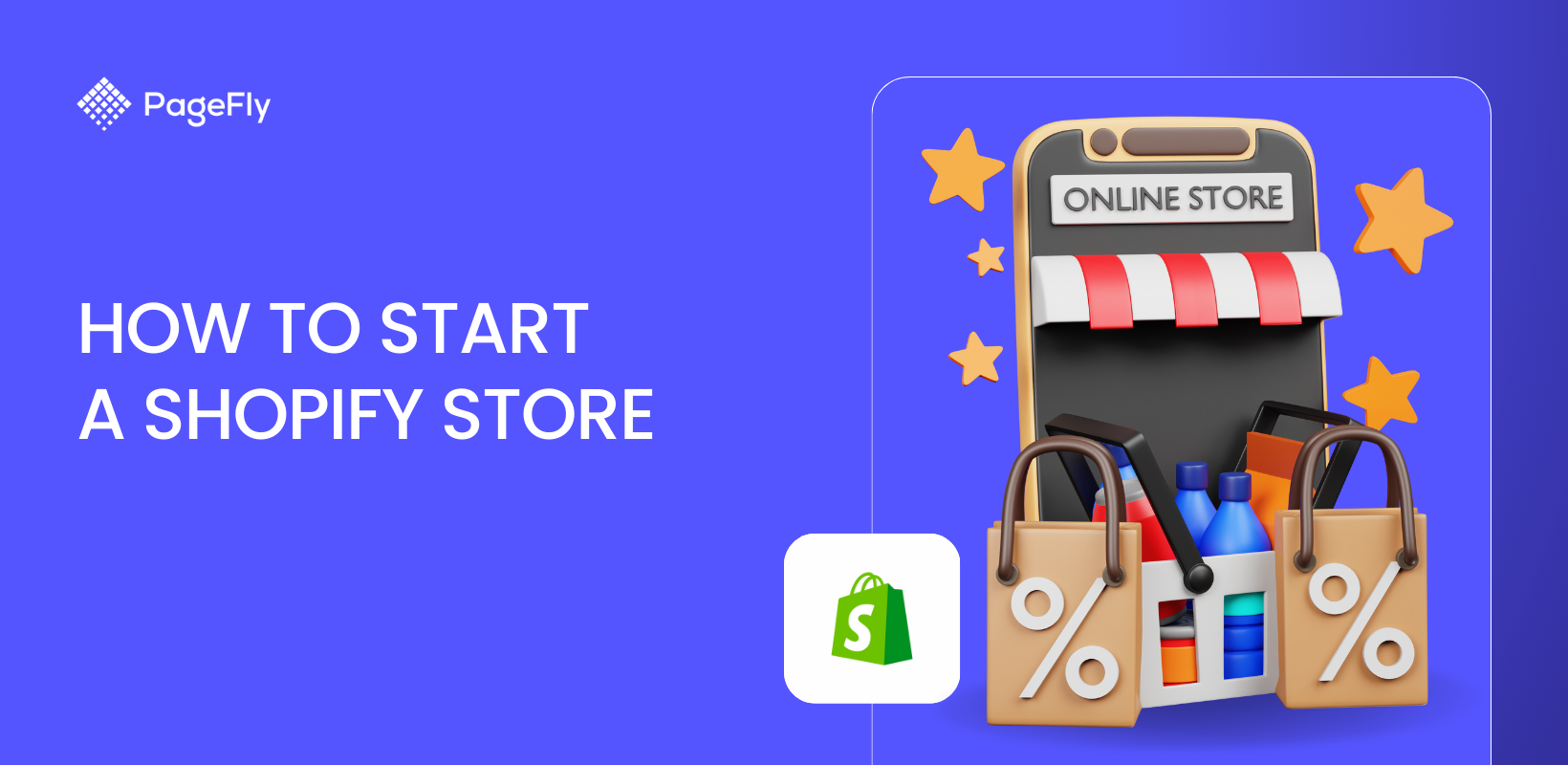
![27 Best Shopify General Stores + Complete Strategy Guide [2025]](http://pagefly.io/cdn/shop/articles/Best_Shopify_General_Stores_2f9d09f2-7c38-4da9-a495-e9f4898ddd68.jpg?v=1757271936&width=1640)
